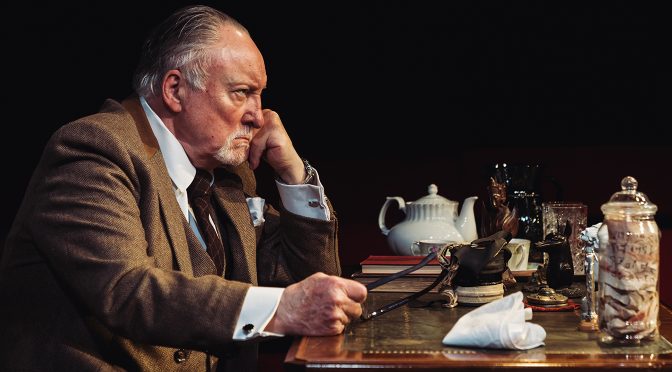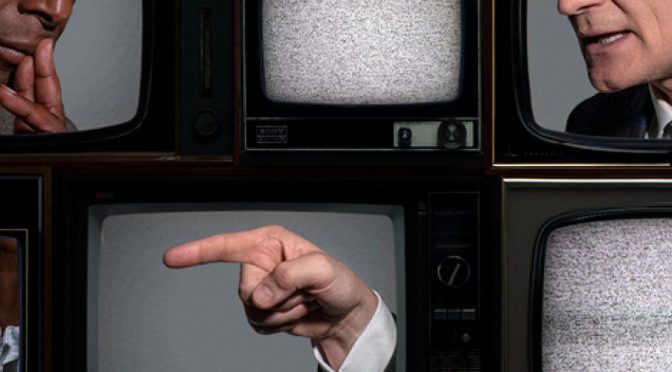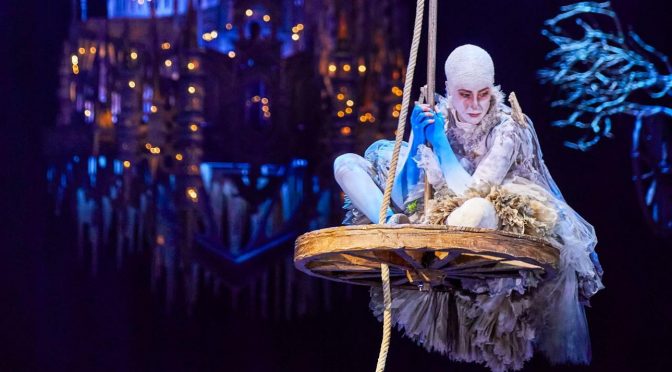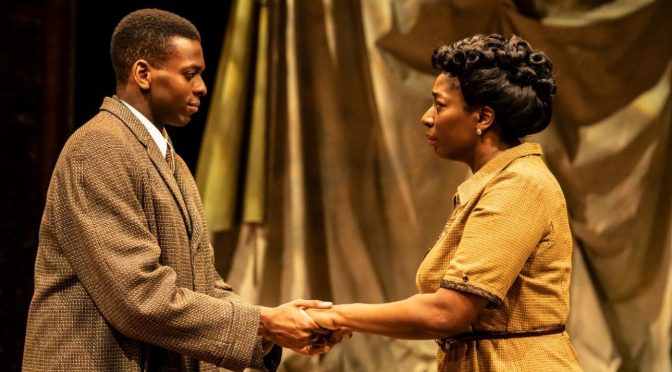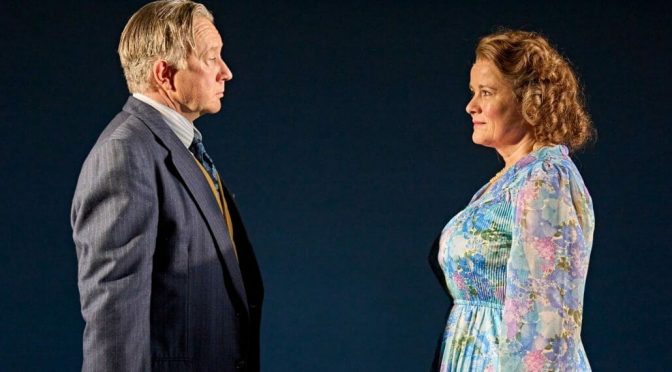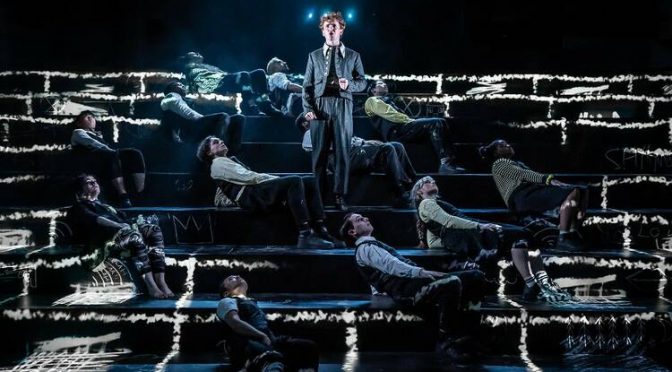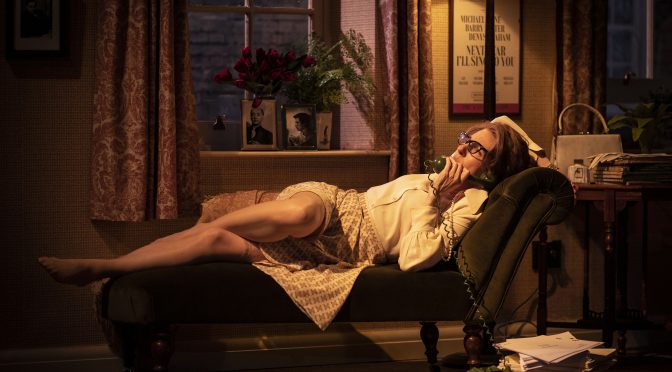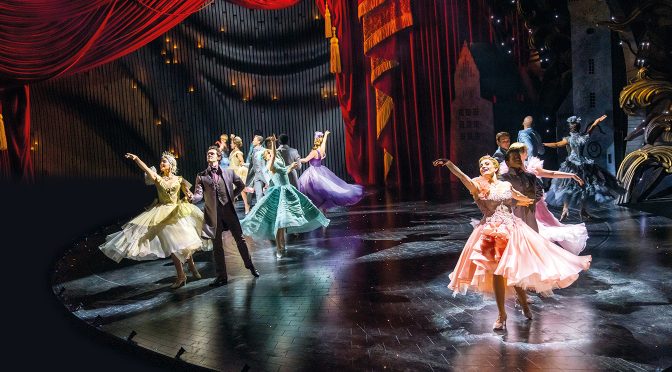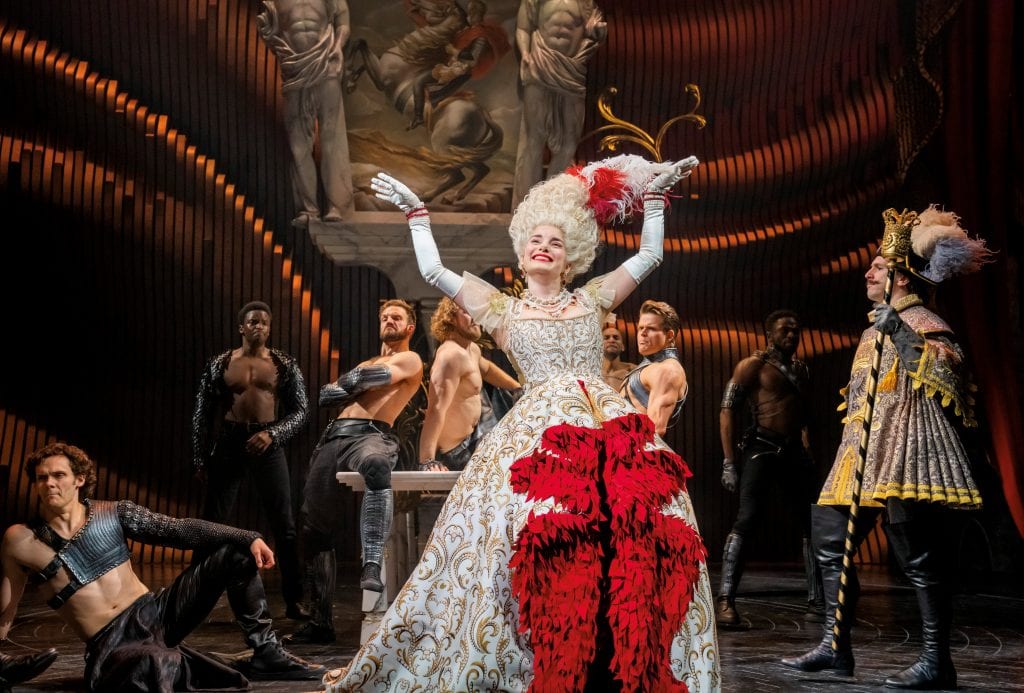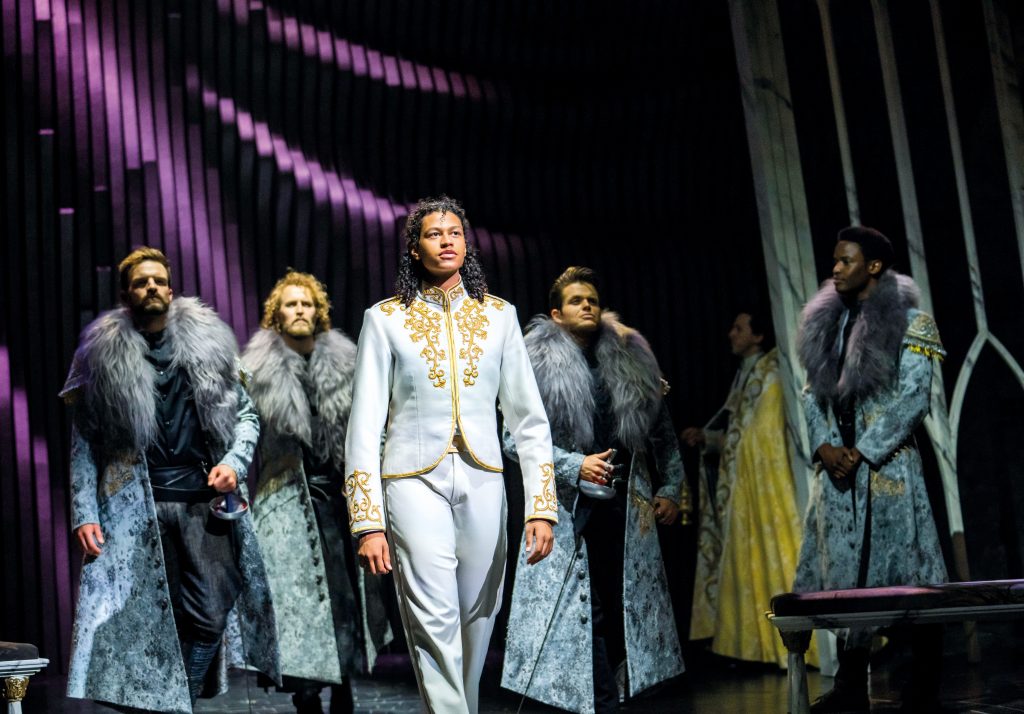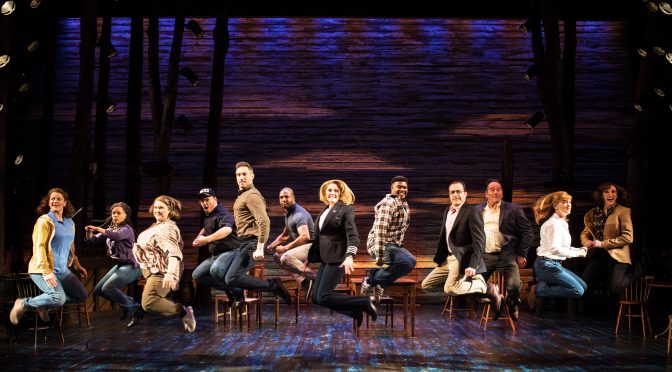As a battle between great minds, Mark St Germain’s play tackles big issues. Arguments are handled well and the performances in this UK première are strong. If debate is what you want, this off-Broadway hit has plenty.
It’s a meeting between arch atheist Sigmund Freud and the “most reluctant convert” to religion, CS Lewis, so it’s no surprise that the hot topic is the existence of God. To bring out the arguments around theodicy there are two world wars to discuss alongside both men’s troubles, including Freud’s cancer and his wish to end his life.
One problem it’s easy to see coming is the amount of exposition needed. St Germain presents discussion clearly and in context – elegantly so. But there’s still an amount of exposition it’s obvious the men themselves wouldn’t need. There’s a touch too much of “So, you’ve read my…” along with keywords to anchor the audience.
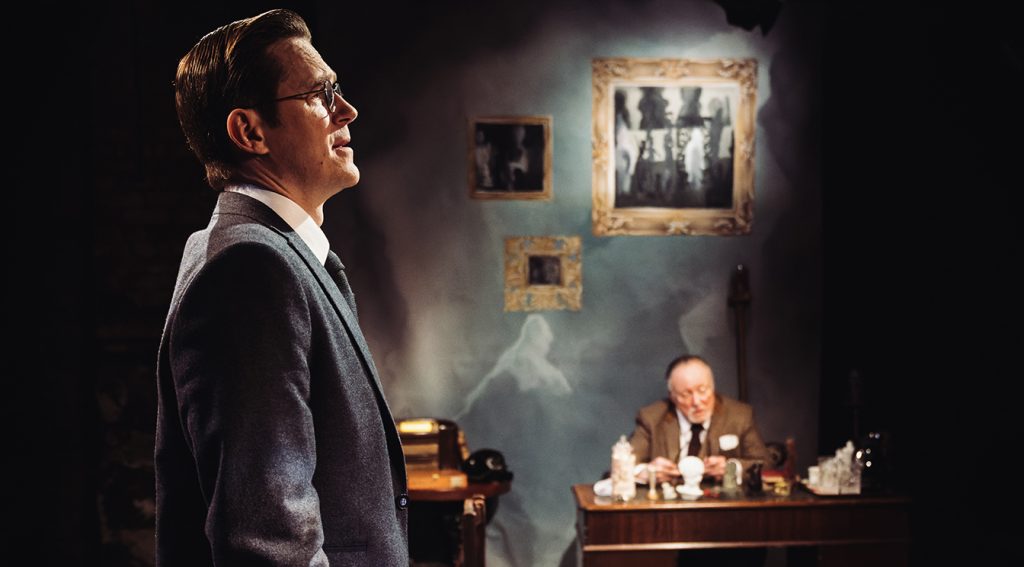
As an intellectual tennis match, the production is, inevitably, static. Wisely, Brad Caleb Lee’s design doesn’t shy away from this. Peter Darney’s direction keeps the ball moving, including suggestions of action aided by Sam Glossop’s sound design: an air raid is particularly effective.
That potential bombing allows us to see Lewis still traumatised by his experiences in World War I. It’s a great moment for Séan Browne, who takes the part. As with Julian Bird’s Freud, these are admirable, controlled performances never overplaying their characters’ fame.
Freud’s illness – performed brilliantly by Bird – is difficult to watch. There’s a visceral quality to the pain that might be the most memorable thing about the play. Credit where it’s due – St Germain shows both sides of a complex argument well. But it’s the acting that made the show for me: strong studies that make legendary figures and powerful discussions feel alive.
Until 12 February 2022
Photo by Alex Brenner

